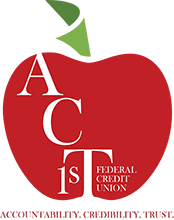Are you ready to take control of your financial future? Well, we have some exciting tips for you on how to improve your financial literacy and awareness.
Understanding the ins and outs of personal finance is crucial in today’s world, and it can truly empower you to make informed decisions about your money.
One of the first steps to improving your financial literacy is to educate yourself. Take advantage of the plethora of resources available, such as books, online courses, and workshops, that cover topics like budgeting, investing, and managing debt. By investing time in learning about these subjects, you’ll gain the knowledge and skills necessary to make sound financial decisions.
Another tip to enhance your financial literacy is to seek advice from professionals. As a valued member of ACT 1st FCU your financial health is our priority, so we’ve partnered with the trusted national nonprofit GreenPath Financial Wellness to offer you free financial counseling, guidance, and educational resources. GreenPath is here to support you in making decisions that make your life better, happier, and more satisfying.
Furthermore, staying up-to-date with current financial news and trends is essential for improving your financial literacy and awareness. Look for new blog posts on our website to receive regular updates. This will allow you to make informed decisions based on the latest information.
Lastly, don’t forget the power of practice. Apply the knowledge you’ve acquired by implementing good financial habits in your daily life. Set a budget, track your expenses, save regularly, and review your financial goals periodically. By putting what you’ve learned into action, you’ll gain hands-on experience that will reinforce your understanding of personal finance concepts.
In conclusion, improving your financial literacy and awareness is an exciting journey that can lead to a brighter financial future. Educating yourself, seeking professional advice, staying informed, and practicing good financial habits are all key steps towards achieving financial success. So why wait? Start today and take control of your finances!







